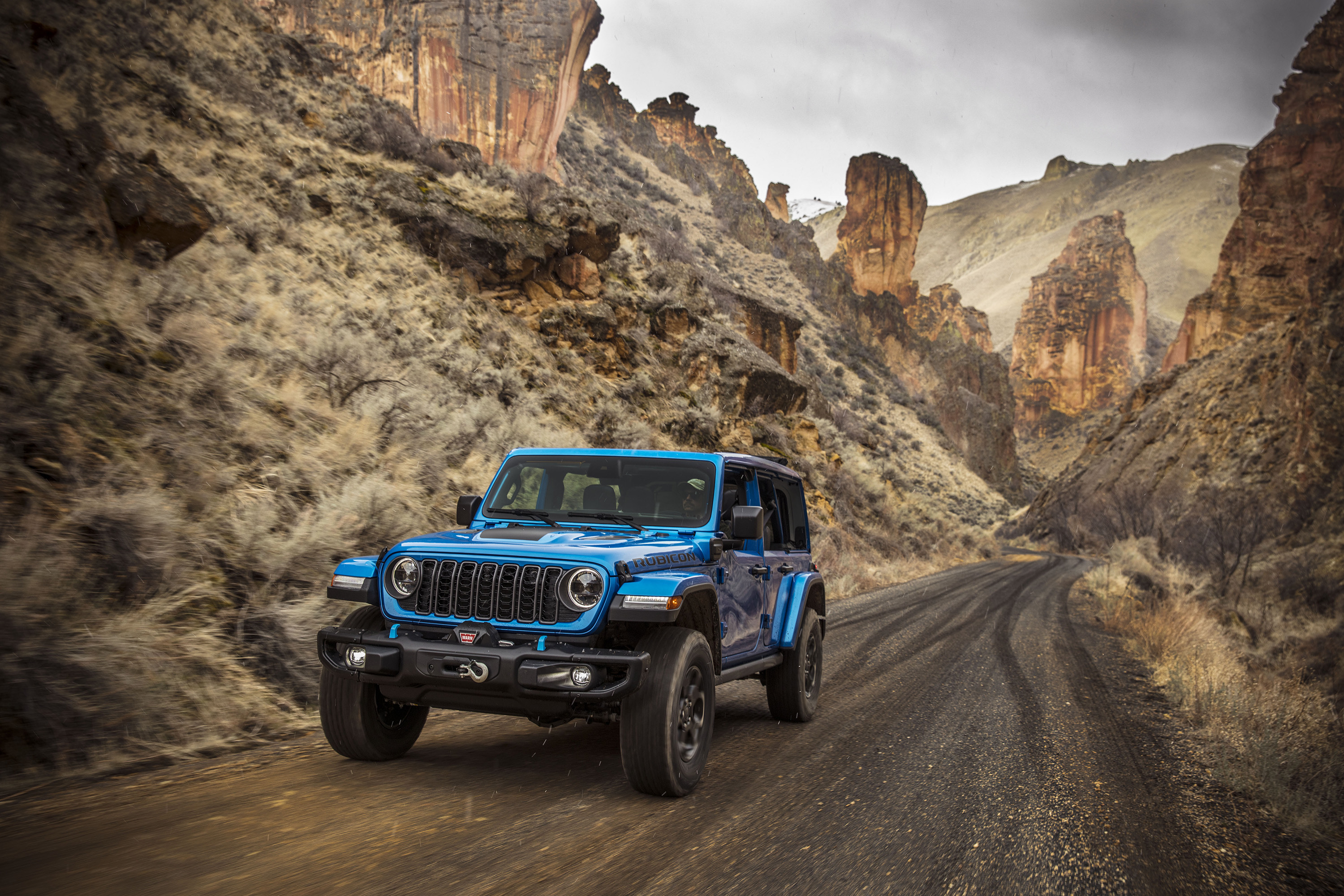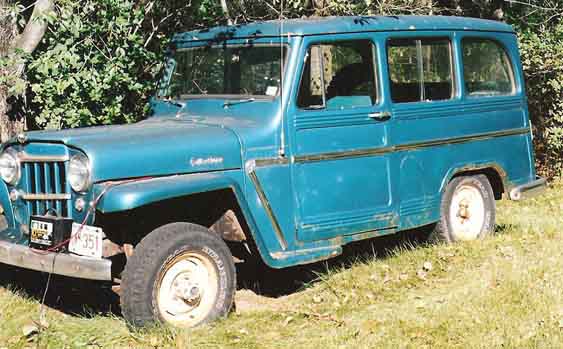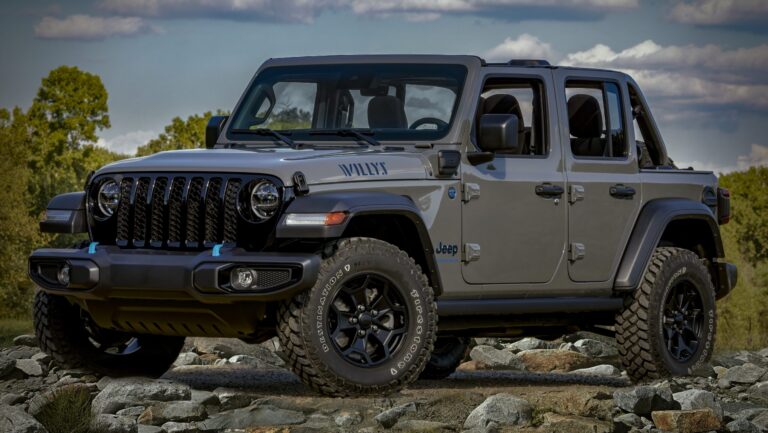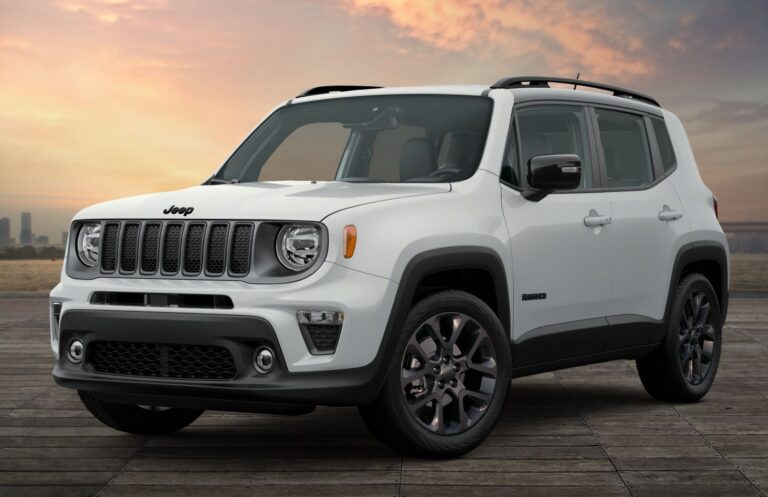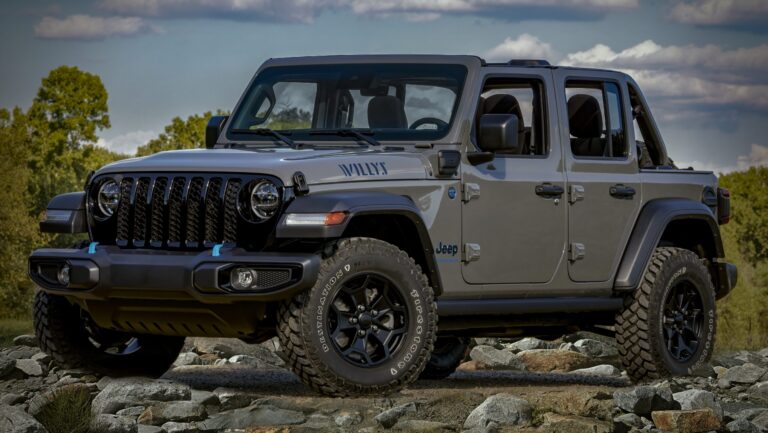Jeep Stroker For Sale: Unleashing Raw Power for Your Off-Road Adventures
Jeep Stroker For Sale: Unleashing Raw Power for Your Off-Road Adventures jeeps.truckstrend.com
The iconic Jeep 4.0L inline-six engine is renowned for its legendary durability and low-end torque. However, for many enthusiasts, "good enough" simply isn’t good enough. They crave more power, more grunt, and an even more exhilarating off-road experience. This desire often leads them to the world of the "Jeep Stroker." When you see "Jeep Stroker For Sale," you’re looking at a vehicle or an engine that has undergone a significant transformation, designed to elevate performance far beyond stock specifications.
A Jeep Stroker is, at its core, a modified 4.0-liter engine that has been internally enlarged to a greater displacement, typically ranging from 4.6 liters to 4.9 liters. This "stroking" process involves using a crankshaft with a longer stroke, often coupled with new connecting rods and pistons, effectively increasing the engine’s volume. The result? A substantial boost in horsepower and, more importantly for off-road applications, a significant increase in torque. For anyone looking to conquer challenging trails, haul heavier loads, or simply enjoy a more responsive daily driver, a Jeep Stroker represents a potent upgrade that can breathe new life into their beloved 4×4.
Jeep Stroker For Sale: Unleashing Raw Power for Your Off-Road Adventures
What Exactly is a Jeep Stroker? Deconstructing the Powerhouse
To fully appreciate a Jeep Stroker For Sale, it’s crucial to understand what goes into its creation. The standard Jeep 4.0L I6 (found in models like the XJ Cherokee, TJ/YJ Wrangler, and ZJ Grand Cherokee) is an excellent foundation. Its robust cast-iron block and simple design make it highly adaptable to modifications.
The "stroker" modification primarily involves:
- Crankshaft Replacement: A longer-stroke crankshaft (often from a 4.2L AMC engine, or an aftermarket stroker crank) is installed. This increases the distance the piston travels within the cylinder.
- Connecting Rods: Depending on the crankshaft and desired piston height, custom or specific length connecting rods are used to accommodate the new geometry.
- Pistons: New pistons are required, often with a different compression height and sometimes a larger bore, to match the increased stroke and achieve the desired compression ratio. The cylinders are also often bored out (e.g., from 3.875" to 3.900" or more) to increase displacement further.
- Cylinder Head Work: While not always part of the basic stroker build, porting and polishing the cylinder head, along with larger valves, can further optimize airflow and horsepower.
- Camshaft: A custom-ground camshaft is often installed to take advantage of the increased displacement and improve valve timing for better power delivery.
- Engine Management/Tuning: This is perhaps the most critical component for a successful stroker. The engine’s computer (ECU/PCM) must be reprogrammed or "tuned" to correctly manage fuel delivery, ignition timing, and other parameters for the larger displacement engine. Without proper tuning, a stroker will run poorly, inefficiently, or even damage itself.

Common stroker displacements include 4.6L, 4.7L, and 4.9L, each offering varying levels of power and torque increases, typically ranging from 25% to 35% over stock, sometimes even more with aggressive builds.
Why Consider a Jeep Stroker For Sale? Benefits & Advantages

Opting for a Jeep Stroker For Sale, either as a complete vehicle or a standalone engine, offers a compelling list of advantages for the discerning enthusiast:
- Significant Power & Torque Boost: This is the primary draw. A stroker engine provides dramatically more horsepower and, critically, more low-end torque. This translates to effortless highway cruising, superior acceleration, and unparalleled crawling ability on challenging off-road terrain. You’ll notice the difference immediately, especially when climbing steep inclines or navigating technical obstacles.
- Enhanced Off-Road Capability: The increased low-end torque is a game-changer for rock crawling, mudding, and navigating soft sand. Your Jeep will be able to maintain momentum and traction more easily, reducing the need for excessive throttle input and potential damage.
- Improved Daily Driving Experience: Even if off-roading isn’t your sole purpose, a stroker makes for a much more enjoyable daily driver. It’s more responsive, requires less downshifting on hills, and generally feels more lively and capable.
- Potential Cost-Effectiveness: Building a stroker from scratch can be a time-consuming and expensive endeavor, requiring specialized tools and knowledge. Buying a professionally built stroker engine or a complete Jeep with a stroker already installed can often be more cost-effective than starting from square one. The labor costs alone for a proper build are significant.
- Proven Performance (If Documented): When buying a stroker for sale, especially from a reputable builder or a meticulous owner, you might benefit from a proven setup. If dyno sheets, build specs, and maintenance records are available, you’re buying a known quantity rather than embarking on a potentially experimental build.
- Longevity (When Built Correctly): A well-built and properly tuned stroker, using quality components and meticulous assembly, can be as reliable, if not more so, than a stock 4.0L. The key is "well-built and properly tuned."

Where to Find a Jeep Stroker For Sale: Your Buying Options
Finding a Jeep Stroker For Sale requires knowing where to look and what type of purchase you’re seeking:
- Complete Jeeps with Stroker Engines:
- Online Marketplaces: Websites like Craigslist, Facebook Marketplace, and dedicated Jeep/off-road classifieds are popular. Be prepared to sift through many listings and exercise caution.
- Specialized Dealerships/Builders: Some custom shops or dealerships specialize in modified Jeeps. These typically offer higher quality builds but at a premium price.
- Online Forums & Enthusiast Groups: Jeep-specific forums (e.g., NAXJA for XJs, JeepForum for various models) often have classified sections where members sell their highly modified vehicles. This can be a great source as sellers are often enthusiasts themselves and may provide more detailed histories.
- Auto Auctions: Less common, but modified Jeeps can occasionally appear at public or dealer auctions.
- Stand-Alone Stroker Engines:
- Performance Engine Builders: Companies that specialize in Jeep engine builds often sell complete, ready-to-drop-in stroker engines. These are typically remanufactured with new components and come with warranties.
- Online Parts Retailers: Many off-road parts suppliers offer crate stroker engines or pre-assembled long blocks.
- Private Sellers (Forums/Classifieds): You might find a stroker engine from someone who upgraded to a V8 swap or is parting out a project. Exercise extreme caution here, as verifying the build quality can be difficult.
- Stroker Kits (For DIY Installation): While not "for sale" as a complete unit, many companies offer complete stroker kits that include the crankshaft, rods, pistons, cam, and sometimes even a new cylinder head. This is an option for those with mechanical aptitude and the desire to build their own.
Key Considerations When Buying a Jeep Stroker (or a Jeep with one)
Purchasing a Jeep Stroker For Sale demands thorough due diligence. Unlike a stock vehicle, there are many more variables to consider:
- Documentation & Build History: This is paramount. Who built the engine? Was it a reputable shop or a DIY project? What specific components were used (crank, rods, pistons, cam, head)? Are there receipts for parts and labor? Dyno sheets confirming power output are a huge plus.
- Engine Tuning: Has the ECU been properly tuned for the stroker? A poorly tuned stroker will run rough, get terrible fuel economy, and could suffer premature wear or damage. Ask about the tuning method (standalone ECU, reflash, piggyback module).
- Mileage & Usage: How many miles are on the stroker engine since it was built? What kind of use has it seen (daily driver, weekend warrior, hardcore trail rig)? Lower mileage and less abusive use are generally preferable.
- Maintenance Records: Has the engine been regularly maintained? Oil changes with appropriate oil, cooling system flushes, spark plug replacements, etc.
- Supporting Modifications: A stroker produces significantly more power and heat. Has the rest of the Jeep been upgraded to handle it?
- Cooling System: An upgraded radiator, high-flow water pump, and improved fan are often necessary to prevent overheating.
- Transmission: Is the transmission robust enough (e.g., upgraded torque converter for automatics, heavy-duty clutch for manuals)?
- Axles & Driveshafts: Increased torque can stress weaker axles and driveshafts, especially with larger tires.
- Brakes: More power often means you need more stopping power.
- Exhaust: A free-flowing exhaust system is beneficial for stroker performance.
- Compression & Leakdown Test: Always request or perform these tests. They provide crucial insights into the engine’s internal health, piston rings, and valve sealing.
- Seller Reputation: Buy from someone trustworthy. If it’s a private sale, ask for references or check online reviews if they’re a known builder.
- Emissions & Legality: Check your local emissions regulations. Some areas have strict rules, and a modified engine, especially one with an altered displacement, might fail. Ensure the engine has a catalytic converter and proper O2 sensor readings.
The "How-To" of Evaluating a Jeep Stroker For Sale
When you’ve found a potential Jeep Stroker For Sale, follow these steps for a thorough evaluation:
- Initial Communication: Ask detailed questions about the build history, components, tuning, and supporting modifications. Request photos of the build process if available.
- Visual Inspection:
- Engine Bay: Look for cleanliness, signs of leaks (oil, coolant), cracked hoses, loose wiring, and overall tidiness. A messy engine bay can indicate a rushed or amateur build.
- Cooling System: Check the radiator for damage, the fan for proper operation, and coolant levels/color.
- Exhaust System: Look for proper routing and any signs of leaks.
- Fluid Levels: Check oil and coolant.
- Engine Startup & Idling:
- Listen for unusual noises (knocks, ticks, excessive lifter noise, exhaust leaks).
- Observe idle quality – should be smooth, not erratic.
- Check for excessive smoke from the exhaust (blue for oil, white for coolant, black for rich fuel).
- Test Drive:
- Power Delivery: Does it feel strong and linear? Is there any hesitation or flat spots?
- Transmission: Does it shift smoothly and correctly under power?
- Gauges: Monitor engine temperature, oil pressure, and voltage. Overheating is a major concern for strokers.
- Sounds: Listen for any new or concerning noises under load.
- Professional Pre-Purchase Inspection (PPI): This is highly recommended for any modified vehicle, especially a stroker. Take the Jeep to a trusted mechanic specializing in Jeeps or performance engines. They can perform compression/leakdown tests, scan for trouble codes, and identify potential issues you might miss.
Potential Challenges and Solutions
While a stroker can be fantastic, be aware of potential challenges:
- Reliability Concerns: A poorly built or improperly tuned stroker can be a nightmare of issues, from overheating to premature wear.
- Solution: Emphasize documentation, reputable builders, and a thorough PPI.
- Overheating: More power means more heat. Stock cooling systems often can’t cope.
- Solution: Ensure the cooling system has been adequately upgraded (heavy-duty radiator, fan, water pump). Monitor temps closely.
- Fuel Economy: Strokers generally consume more fuel than stock 4.0L engines, especially with aggressive tuning.
- Solution: Accept it as part of the performance trade-off, or consider a tune optimized for efficiency (though this might sacrifice some power).
- Emissions Issues: Depending on your local laws, a stroker might struggle to pass smog tests if not properly set up.
- Solution: Verify the tuning accounts for emissions, and ensure all required components (catalytic converters, O2 sensors) are present and functional.
- Cost of Supporting Mods: The engine is just one part. Upgrading other components (transmission, axles, cooling) can add significantly to the overall cost.
- Solution: Budget for these potential upgrades if they haven’t already been addressed by the seller.
Practical Advice and Actionable Insights
- Do Your Homework: Research specific stroker builds, common issues, and reputable builders.
- Don’t Rush: Take your time. The right stroker will come along.
- Get a PPI: This cannot be stressed enough. It’s a small investment that can save you thousands.
- Budget Beyond the Purchase Price: Factor in potential immediate maintenance, tuning adjustments, or necessary supporting modifications.
- Understand Local Regulations: Be aware of emissions and modification laws in your area.
- Engage with the Community: Join Jeep forums and ask for advice. Experienced enthusiasts can offer invaluable insights.
Jeep Stroker For Sale: Estimated Price Guide
Pricing for Jeep Stroker engines and Jeeps equipped with them varies widely based on the quality of the build, components used, professional installation vs. DIY, and overall condition. The table below provides a general estimate.
| Item/Category | Description | Estimated Price Range (USD) | Notes
